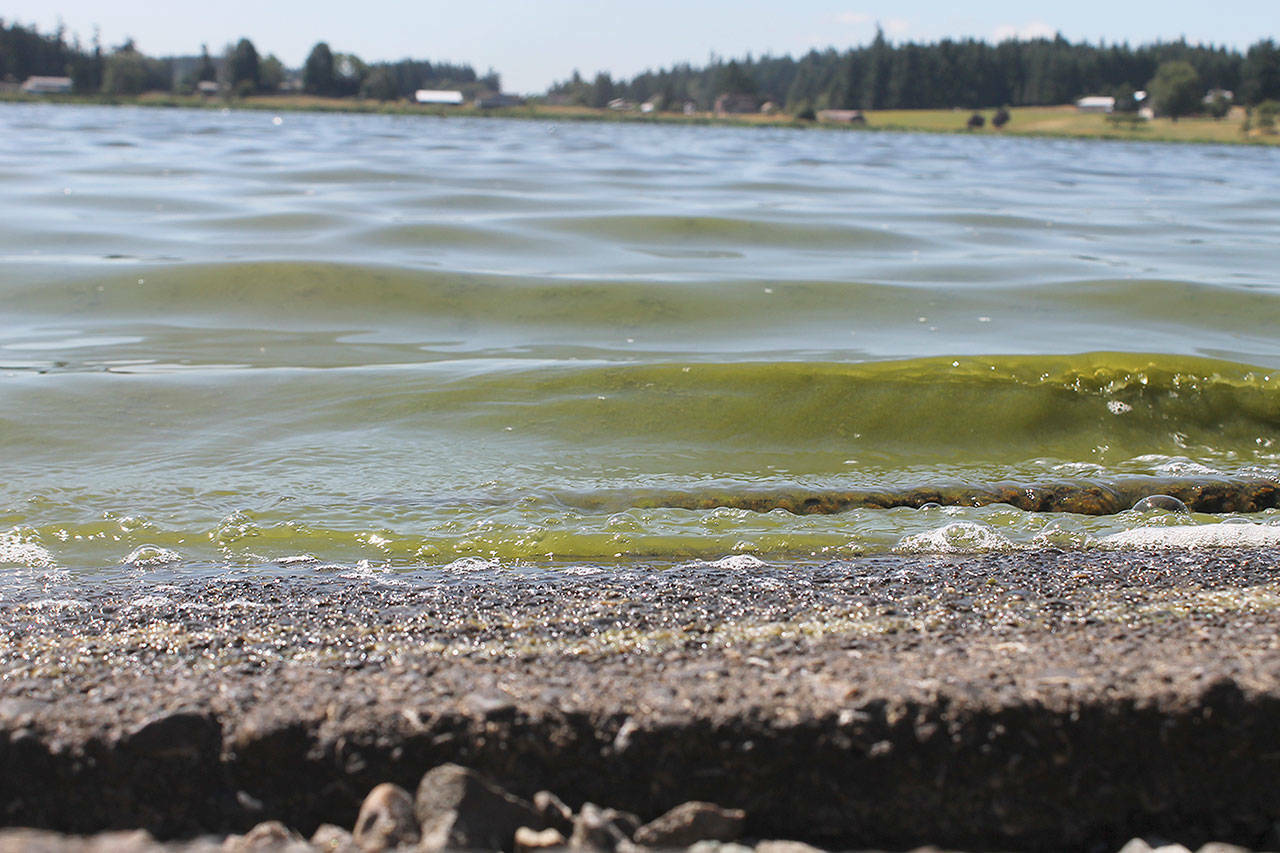Island County officials are searching for ways to deal with one of the more subtler aspects of climate change.
The topic of toxic blue-green algae surfaced during a recent county commissioners’ work session. Commissioner Melanie Bacon explained that algae blooms are a persistent problem in the lakes of Whidbey Island but are most prominent in Lone Lake. The blooms are harmful to animals and people.
“The issue for me is that as we continue to have warmer summers that last longer, it’s going to become more and more a problem for all the lakes in the state,” she said, adding that the state legislature should identify dealing with the blue-green algae as a climate mitigation action.
Keith Higman, Health Services director of Island County Public Health, said that ever since the first algae bloom appeared in Cranberry Lake decades ago, there has existed a public expectation that county government should be responding in some way to the issue. He pointed out that while the public health department has been able to erect signs warning citizens of the danger, the county does not have the dedicated resources to resolve the issue.
Environmental Health Manager Heather Kortuem said the state Department of Ecology reached out to her recently about potential state funding to help the county deal with blue-green algae in lakes.
“They’ve come to us and said, ‘We want to help you because people keep recording animals dying,’” she said, adding that at least one of the dead animals was sent for testing at a lab and was verified to have died from blue-green algae.
Bacon said she had heard of some deer on Lone Lake that died, presumably from algae poisoning. She also said she had heard from a concerned citizen about a man that was fishing at Lone Lake while his child swam in the water.
Higman assured the commissioners that the topic is on the county’s work plan. He said other jurisdictional programs will need to be evaluated.
Commissioner Janet St. Clair said she liked that Bacon was thinking of the issue in terms of climate resiliency. She also spoke about the importance of getting state and federal support to rural counties.



